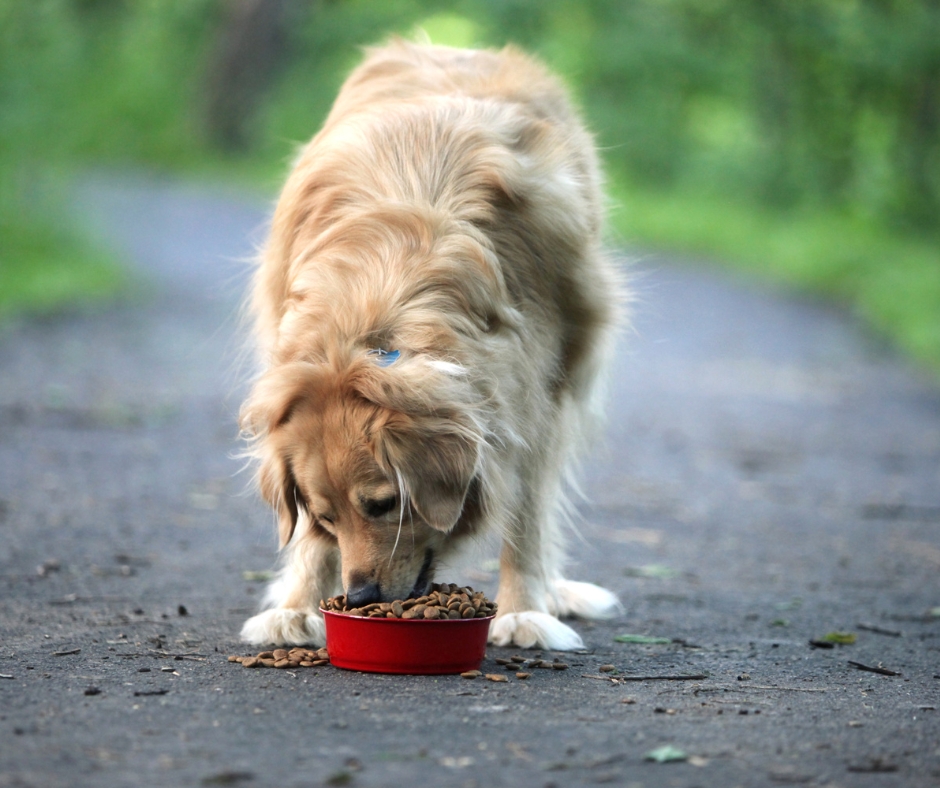Dogs nutritional requirements Determined Scientific research and recommendations made by organizations like AAFCO help the needs of dogs. These guidelines provide appropriate nutrition throughout all stages of life.
Dogs nutritional Requirements Determined is essential to longevity and overall health. Diets that are balanced promote general health and avoid deficiencies. Breed, age, size, and activity level all affect dietary requirements. Adult dogs need maintenance meals, while pups need additional protein and calories for growth.
Senior dogs benefit from diets that are lower in calories and richer in fiber. Always select high-quality dog food that meets AAFCO standards. Routine veterinary visits make meal customization easier. You can maintain your dog’s health and activity level by being mindful of these requirements. High-quality nutrition is the cornerstone of a contented, healthy pet.
An Overview of Nutrition in Dogs
Knowing what your dog needs to eat is crucial. The secret to a contented and healthy pet is a balanced diet. Dogs require a diet that is balanced in terms of proteins, fats, and carbohydrates. Minerals and vitamins are also necessary. You will learn the fundamentals of canine nutrition in this part.
Importance Of Proper Nutrition
Proper feeding helps to maintain a dog’s general health. It encourages healthy skin and coat and boosts their immune system. A well-balanced diet can help prevent many health issues. Dogs that are fed properly have better digestion and greater energy.
It’s critical to provide your dog the proper diet. It might increase their lifespan and enhance their quality of life. Nutrient-dense foods help maintain strong bones and promote muscular development. Ensure that the food your dog consumes is customized to meet their specific needs.
Common Myths
Dogs nutritional Requirements Determined is the subject of several misconceptions. The idea that dogs and people may share meals is one that is often held. This is untrue. Dogs need different diets.
The idea that all dog chow is the same is another misconception. Brands differ significantly in quality. Certain foods are deficient in vital elements. Always verify the quality of ingredients on labels.
Dogs should only consume raw food, according to some people. Not every dog can use this. Before altering your diet, speak with your veterinarian. They can provide the greatest health recommendations for your dog.
Factors Influencing Nutritional Needs
It’s critical to comprehend how to provide for a dog’s dietary demands. Several factors have an impact on these demands. Since every dog is different, their food needs to be tailored to meet their needs.
Age And Life Stage
The dog’s age and stage of life have a significant impact on its nutritional needs. Dogs of different ages need different kinds and amounts of food.
- Puppies: Require more protein and calories. They are growing and need extra energy.
- Adult Dogs: Need a balanced diet to maintain their health and energy levels.
- Senior Dogs: Often need fewer calories but more fiber. As people get older, their metabolism slows down.
The proper diet encourages lifespan and good health at every stage. For unique food requirements according to age and life stage, speak with a veterinarian.
Breed And Size
Breed and size are the main factors that determine a dog’s nutritional needs. Different breeds have different dietary requirements.
| Breed Size | Nutritional Needs |
|---|---|
| Small Breeds | Need nutrient-dense food. They have faster metabolisms and burn calories quickly. |
| Large Breeds | Require food that supports joint health. They are prone to joint issues. |
There may be nutritional requirements unique to each breed. For instance, some breeds are more likely to have stomach problems or allergies. Health issues may be avoided by feeding them food appropriate to their breed and size.
Essential Nutrients For Dogs
A healthy diet is essential for all dogs. This contains vital nutrients that maintain their well-being. Dogs nutritional Requirements Determined to meet their needs, remain robust and lively. The secret to their health is knowing these nutrients.
Amino Acids and Proteins
For a dog to develop and repair its muscles, proteins are essential. Dogs’ bodies need amino acids for a number of processes. These are the components that make up proteins.
- Builds and repairs tissues
- Supports immune system
- Provides energy
They must get essential amino acids from their nutrition. These are not self-produced by dogs. Dairy products, meat, fish, and eggs are all good sources.
Vitamins And Minerals
Vitamins and minerals are vital for a dog’s overall health. They support the body’s various functions. Each vitamin and mineral has a certain purpose.
| Vitamin | Function | Source |
|---|---|---|
| Vitamin A | Vision and immune function | Liver, carrots |
| Vitamin D | Bone health | Fish oil, sunlight |
| Vitamin E | Antioxidant | Vegetable oils, seeds |
Minerals like calcium and phosphorus are also essential. They support strong nerves and bones.
- Calcium: Found in bones and teeth
- Phosphorus: Found in bones, meat
- Iron: Essential for blood health
A variety of these nutrients should be given to your dog. This preserves their energy and overall wellness.
Veterinary nutritionists’ role
For dogs to be provided a balanced diet, veterinary nutritionists are essential. They evaluate each dog’s particular requirements and develop plans to satisfy them. These experts have undergone specialized training in animal nutrition. They understand how different nutrients affect a dog’s health.
Analysis and Planning
For veterinarian nutritionists, a comprehensive assessment is the first step. They take the dog’s weight, age, and general health into account. Additionally, they consider the dog’s breed and level of exercise.
They create a diet plan that includes all the required elements based on this information. Each dog will receive the proper amounts of proteins, lipids, vitamins, and minerals thanks to this procedure.
Customized Diets
Because each dog is unique, their diet needs to be customized. Veterinary nutritionists can alter diets to treat particular medical conditions. For instance, a dog with kidney issues might require a low-protein diet. A dog with allergies may require a hypoallergenic diet.
They also take into account any dietary restrictions and the dog’s preferences. This makes it easier to design a diet that the dog will love and flourish on.
| Factors | Considerations |
|---|---|
| Age | Puppies need more protein; seniors need fewer calories. |
| Weight | Overweight dogs need low-calorie diets; underweight dogs need high-calorie diets. |
| Health Status | Special diets for conditions like diabetes or kidney disease. |
| Activity Level | Active dogs need more energy; sedentary dogs need fewer calories. |
Homemade Diets vs. Commercial Dog Food
It might be difficult to decide between homemade diets and store-bought dog food. Every choice has a unique combination of advantages and disadvantages. By being aware of them, you may choose what’s best for your dog’s diet.
Benefits and Drawbacks
Commercial dog food offers balanced nutrients and is convenient. It is designed to satisfy certain nutritional needs. However, it may have artificial additives and preservatives.
The ingredients in DIY diets are under your control. By avoiding additives, you may ensure freshness. It might take a long time, though, and it might not have all the nutrients needed.
| Aspect | Commercial Dog Food | Homemade Diets |
|---|---|---|
| Convenience | High | Low |
| Ingredient Control | Low | High |
| Balanced Nutrition | Usually | Varies |
Safety And Regulations
The FDA and other organizations regulate commercial dog food. They guarantee that the food satisfies nutritional requirements and is safe. Pet owners may rest easy because of this rule.
There is no official regulation of homemade diets. To ensure safety, heeding the veterinarian’s recommendations is essential. Inadequate meal preparation might lead to nutritional shortages or other health problems.
- Commercial Dog Food: FDA-regulated, consistent quality
- Homemade Diets: No formal regulation, requires careful planning
Being aware of the benefits and drawbacks of each option helps you make an informed decision. When making your decision, put your dog’s health and nutritional requirements first.
How To Read Dog Food Labels
Labels on dog food may be hard to read. Understanding what your dog eats is essential. This section explains how to interpret these labels.
Important Details to Look for
When reading a dog food label, take note of the following crucial information:
- Guaranteed Analysis: This shows nutrient content.
- Ingredients List: This lists all ingredients used.
- Feeding Guidelines: Follow these for proper portions.
- AAFCO Statement: This indicates the food meets standards.
Making smarter decisions for your dog is made easier when you are aware of these important factors.
Understanding Ingredients
The list of components is important. It aids in your comprehension of what your dog will consume.
The following advice will help you read the component list:
- First Ingredient: The first item listed is the primary ingredient.
- Meat vs. Meal: Meat is fresh, while meal is dried and concentrated.
- By-products: These can be less desirable parts of the animal.
- Fillers: Ingredients like corn or soy may not be nutritious.
Being aware of these details ensures your dog eats healthily.
| Ingredient | Description |
|---|---|
| Meat | Fresh, high-protein content. |
| Meat Meal | Dried, concentrated protein. |
| By-Products | Less desirable animal parts. |
| Fillers | Ingredients like corn or soy. |
Your dog will get the optimum nourishment if you are aware of these elements.
Common Nutritional Issues
Numerous dietary problems that impact a dog’s health might arise. Being aware of these problems helps in keeping dogs nutritional requirements determined and balanced. Some of the typical dietary issues that dogs face are listed below.
Weight Management and Obesity
Dog obesity is a prevalent problem. It may result in major health issues.
Regular exercise and a healthy diet are essential. Maintaining physical activity and keeping an eye on caloric consumption are key components of weight control.
| Calorie Source | Daily Limit |
|---|---|
| Carbohydrates | 45% |
| Proteins | 30% |
| Fats | 25% |
Allergies And Sensitivities
Certain foods may cause allergies and sensitivities in dogs. These may result in rashes, irritation, or stomach problems.
- Common allergens: beef, chicken, dairy.
- Monitor symptoms like vomiting, diarrhea, or skin problems.
- Consult a vet for allergy testing.
It may be necessary to follow a certain diet. Hypoallergenic foods could be helpful in effectively managing these issues.

Keeping The Diet Balanced
It’s important to keep dogs nutritional requirements determined. For optimal health, dogs need the proper combination of nutrients. A nutritious diet encourages development, vigor, and the avoidance of disease. This includes the right amounts of proteins, lipids, minerals, and vitamins. Making sure your dog eats healthily may be challenging but helpful.
Regular medical Check-ups
Regular examinations are essential to your dog’s health. These assessments aid in tracking their nutritional requirements and general wellness. Veterinarians can identify dietary deficits early on. As a result, they may quickly modify their diet. Regular examinations ensure that your dog is eating the right diet.
Changing Your Diet Over Time
Dogs have different nutritional needs as they age. Puppies need more protein and calories. Older dogs may need fewer calories but more vitamins. It’s important to gradually change their diet. Veterinarians may provide you advice on any essential modifications. Maintaining an age-appropriate diet for your dog is essential.
| Age | Protein | Calories | Vitamins |
|---|---|---|---|
| Puppy | High | High | Moderate |
| Adult | Moderate | Moderate | High |
| Senior | Low | Low | High |
Maintaining a healthy diet for your dog requires ongoing work. Important steps include obtaining frequent checkups and gradually changing their diet. Providing your dog with the right food helps keep them healthy and happy.
Conclusion and Professional Guidance
Knowing what your dog needs to eat is vital to their health. This part provides an overview of the main ideas and professional guidance. You can make sure your dog is given nutritious food according to these suggestions.
An overview of the main points
- Balanced Diet: Dogs need a mix of proteins, fats, and carbohydrates.
- Age and Size: Nutritional requirements vary by age and size.
- Activity Level: Active dogs need more calories and nutrients.
- Health Conditions: Some dogs need special diets due to health issues.
- Water Intake: Always provide fresh water for your dog.
Tips For Dog Owners
| Tip | Explanation |
|---|---|
| Consult a Vet | Always consult a vet for dietary advice. |
| Read Labels | Check food labels for balanced nutrients. |
| Monitor Weight | Keep track of your dog’s weight regularly. |
| Limit Treats | Too many treats can lead to weight gain. |
| Provide Variety | Offer a variety of foods for balanced nutrition. |
Ensure that your dog consumes the right amount of food. Use a measuring cup for accuracy. Avoid leftover food from the meal. They could upset your dog’s stomach. Choose high-quality dog food. Look for foods that have natural ingredients. Avoid using artificial preservatives and fillers.
As your dog gets older, don’t forget to change their nutrition. Compared to adult dogs, puppies have distinct nutritional needs. Older dogs could need fewer calories. Make the appropriate dietary adjustments. Dogs that eat a balanced diet stay happy and healthy.
FAQ
What Affects a Dog’s Nutritional Requirements?
The age, breed, size, and amount of activity of a dog all affect its dietary requirements. Health issues are also very important.
How do veterinarians analyse nutrition in dogs?
Using dietary histories, blood tests, and physical examinations, veterinarians evaluate the nutritional status of dogs. They offer dietary guidance according to each person’s requirements.
Why Does a Dog Need Protein?
Protein is essential for tissue repair, muscle growth, and general health. It boosts your immunity and gives you energy.
Are humans and dogs able to eat together?
Humans and dogs have distinct nutritional needs. Human food may poison dogs, or it may be deficient in vital nutrients.
In Conclusion
You need to know what your dog needs to eat for both health and enjoyment. Consult your veterinarian for particular advice. Pay careful attention to their diet and make any necessary changes. Well-fed dogs have longer, healthier lives. Give children’s diet first attention to ensure they get all the nutrients they need.
Your pet has a right to the best care possible.










